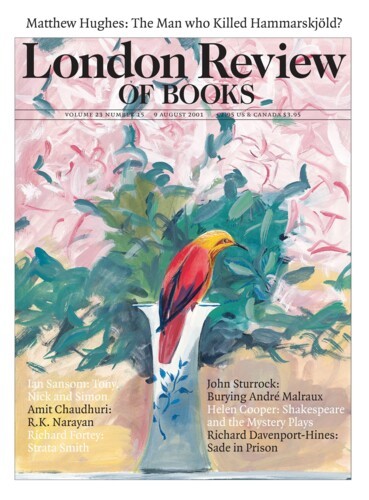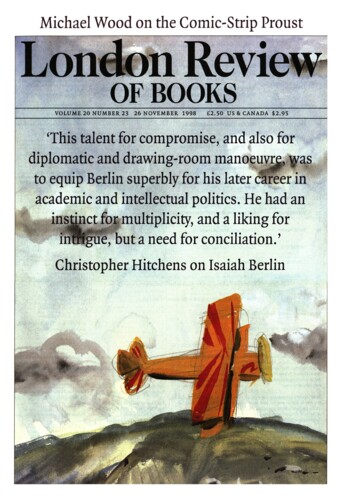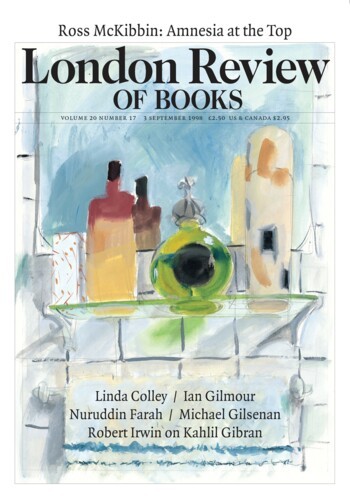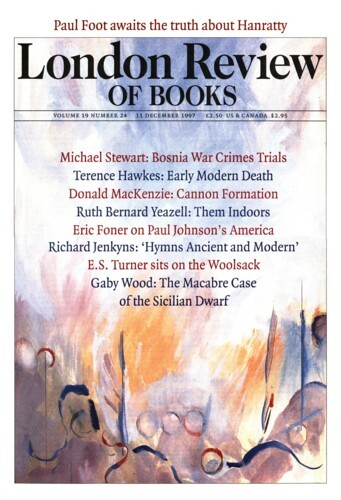Dianne Sachko Macleod’s Art and the Victorian Middle Class opens up a new world: it answers some questions that have hitherto been asked in vain and others which we may not have thought of asking at all. What sort of people collected paintings in the 19th century? How far did they specialise, or were their tastes catholic? What were their motives? Did they buy from artists or dealers, or did they commission works to their own specifications? Who earned the most? How did prices fluctuate? Despite some substantial faults, Macleod’s book has notable virtues also, the first and foremost being that it is a splendid work of research. An appendix of more than a hundred pages – it is a massive volume – lists almost a hundred and fifty middle-class Victorian collectors, with brief biographies and details of their occupations, taste and methods of buying. (Surprisingly, she omits Alexander Henderson, subsequently first Lord Faringdon, whose late Victorian collection is a rarity in having survived and being still visible to the public, at Buscot Park.) Some of these figures acquire a larger life in Macleod’s main text: Robert Vernon, son of a prosperous tradesman, who like Mr Bounderby exaggerated the lowliness of his origins; John Sheepshanks, so shabbily dressed that he was once refused admission to a first-class railway carriage, who told raucous jokes to the Prime Minister as he showed him round his gallery; jolly John Miller, with long white hair and a ripe Scottish voice, at whose table there was only bottled beer to drink, and no pudding followed the meat; devout Thomas Combe, whose patronage of the Pre-Raphaelites was part and parcel of his High Churchmanship (it was he who commissioned Holman Hunt’s Light of the World); the obsessive Thomas Plint, whose death at the age of 38 left his wife and ten children with no assets but his pictures; the farouche crook Albert Grant, born Abraham Gottheimer in Dublin, whose spectacular opulence and rollercoaster career put Merdle and Melmotte in the shade; Thomas Quilter, first president of the Institute of Accountants, who was found after his death to have been rigging the market; Frederick Leyland, patron of Whistler and the Aesthetic Movement, who rose from nowhere to great wealth, only to succumb to the maladie du siècle, deciding that everything in life was dull and hopeless; T.E. Smith, whose wife and daughter both had affairs with the maverick statesman Charles Dilke. As in a painting by Frith, here is a canvas crowded with figures, representing the rich diversity of Victorian life and manners.’
Dianne Sachko Macleod’s Art and the Victorian Middle Class opens up a new world: it answers some questions that have hitherto been asked in vain and others which we may not have thought of...





